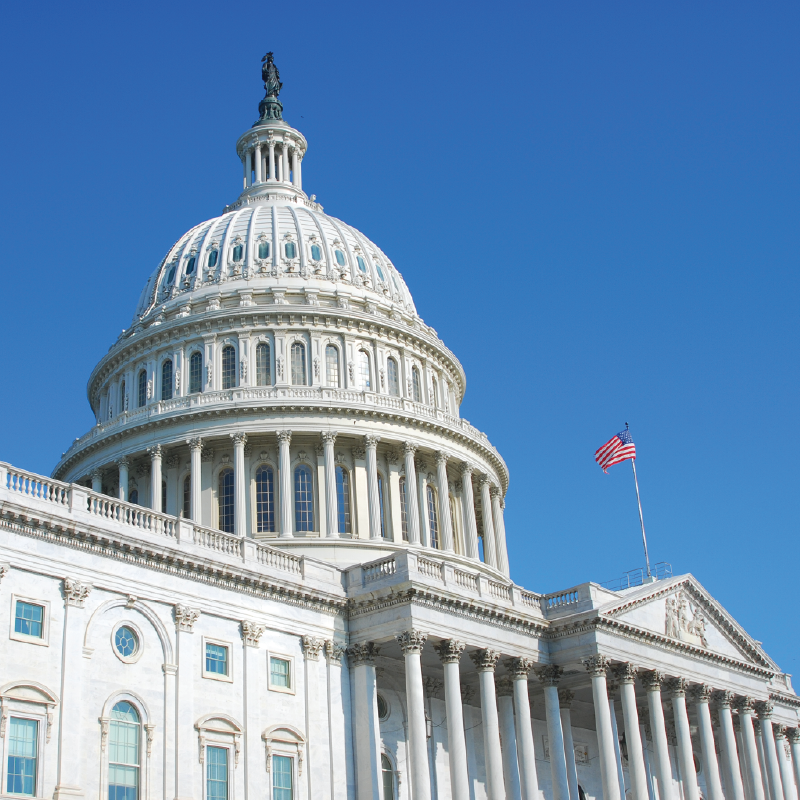Americans Need More Civic Knowledge
The lack of civic knowledge is preventable and begins in our schools, where civic education has been declining

Right now, the U.S. Senate is poised to vote on the “One Big Beautiful Bill,” also known as the 2025 Budget Reconciliation. While the “One Big Beautiful Bill” is a major threat to social safety net programs such as SNAP and Medicaid, too many Americans — somewhere between 21% and 34% according to several polls — state that they don’t know enough to say whether they favor or oppose the legislation.
The problem? An underlying lack of civic knowledge. According to a recent survey, 70% of Americans failed a basic civic literacy quiz. In the case of the “One Big Beautiful Bill,” organizations, advocates, and elected officials are scrambling to fill that gap, creating catchy and educational messaging that outlines the true threat of the bill. In many cases, messaging has been successful, with polls showing that the legislation is wildly unpopular.
But the threat of weak civic knowledge doesn’t end with this year’s budget reconciliation bill. This lack of civic knowledge is preventable and begins in our schools, where civic education has been declining over the past few decades.
As a former seventh grade world history teacher, early in my career I was surprised when my 12- and 13-year-old students couldn’t name who the mayor of our city was, explain the role of a governor, or list the three branches of government. That initial shock quickly turned into opportunity, and eventually, I saw the beauty that can come from civic awareness. My students and I would engage in many high-level conversations about society and the importance of being well-informed. The students were particularly interested in concepts like liberty and would question if this was an aspirational ideal or an ideal that was truly attainable. Through many conversations, they grew to develop understanding, tolerance, and compassion. In addition to gaining skills that supported their journey towards becoming productive citizens, they began to acquire a set of skills that enabled critical thinking and the ability to analyze the world around them.
With a growing push for schools to prioritize workforce development and STEM education, and with people’s growing inability to decipher fact from fiction, school districts and policymakers should not forget the importance of teaching civics in school. Civic education and the study of American history is important not only to the development of students’ ability to reason, but also for the longevity of America itself.
Civic knowledge refers to the understanding of how our political system works. It includes the ideas and information necessary for individuals to become effective and responsible citizens, empowering them to participate in the democratic process and promoting social unity. It helps students develop an understanding of their government, their country, and their rights and responsibilities as citizens.
Despite its importance and bipartisan support — even in the face of rising political polarization — it still isn’t being taught widely, and students and our society continue to suffer. Results from a 2022 NAEP civics exams showed a drop for the first time ever, and only nine states and the District of Columbia require one year of U.S. government or civics to graduate. That lack of instruction has ramifications for adults: 1 in 3 couldn’t name or explain what our three branches of government do, and most Americans could name only a single right guaranteed by the First Amendment.
Learning about the three branches of the federal government or the responsibilities of local and state officials isn’t enough. Learning about civic topics such as liberty and equality requires candid conversations even when our country has failed to live up to them. Denying students opportunities to learn these truths is not only unfair but perilous. Contrary to what some may argue, teaching these ideas truthfully and fully isn’t an assault on American principles but rather a way for students to learn that certain principles should be fought for, pursued diligently, and upheld.
Learning civics encourages students to think critically, engage in inquiry, and continually seek the truth. At a time when our institutions and rights are under attack, the fight to protect, preserve, and promote civics is imperative. As communities and as a country, we must continue to advocate for the prioritization of civic education, critical thinking, tolerance, and empathy. Our nation’s future depends on it.